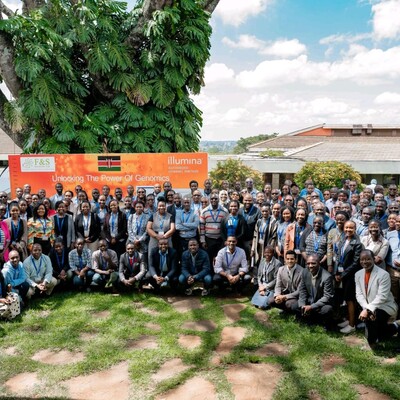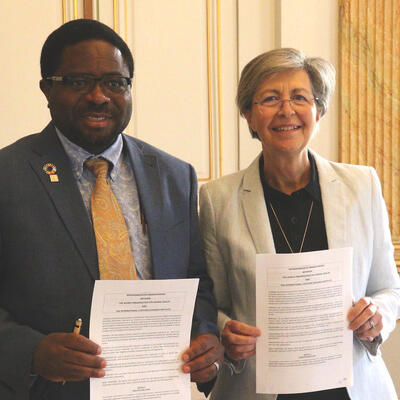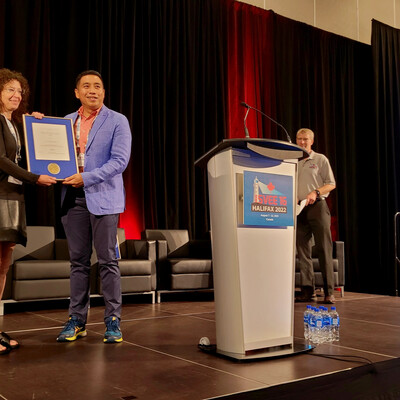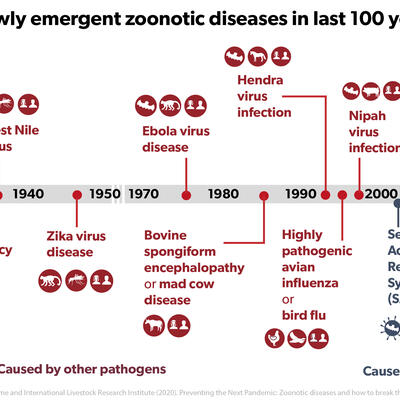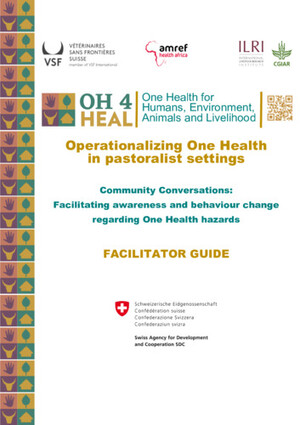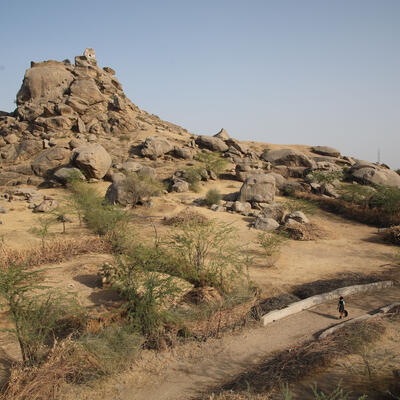
Dynamic drivers of disease in Africa
Dynamic Drivers of Disease in Africa is an Ecosystem Services for Poverty Alleviation-funded research program designed to deliver much-needed, cutting-edge science on the relationships between ecosystems, zoonoses, health and wellbeing, with the objective of helping people move out of poverty and promoting social justice.
Dynamic Drivers of Disease in Africa is an Ecosystem Services for Poverty Alleviation-funded research program designed to deliver much-needed, cutting-edge science on the relationships between ecosystems, zoonoses, health and wellbeing, with the objective of helping people move out of poverty and promoting social justice.
It focuses on four emerging or re-emerging zoonotic diseases in four diverse African ecosystems: henipavirus infection in Ghana, Rift Valley fever in Kenya, Lassa fever in Sierra Leone and trypanosomiasis in Zambia and Zimbabwe. Its innovative, holistic approach brings together natural and social scientists to build an evidence base designed to inform global and national policy players seeking effective, integrated approaches to control and check disease outbreaks.
The Drivers of Disease Consortium comprises over 30 researchers working in 17 institutes across Africa, Europe and the US and includes researchers in the environmental, biological, social, political, and human and animal health sciences. They will generate new knowledge on ecosystem change, how ecology and people’s interactions with ecosystems affect disease emergence, and disease transmission and exposure.
Partners
Economic and Social Research Council STEPS Centre, Brighton, UK
University of Cambridge, UK
Institute of Zoology, London
University of Edinburgh
University College, London
Wildlife Division of the Forestry Commission, University of Ghana
International Livestock Research Institute, Kenya
Kenya Medical Research Institute
University of Nairobi
Kenema Government Hospital, Sierra Leone
Njala University, Sierra Leone
Ministry of Livestock and Fisheries Development, Zambia
University of Zambia
Ministry of Agriculture, Mechanisation and Irrigation Development, Zimbabwe
University of Zimbabwe
Stockholm Resilience Centre
Tulane University, USA







